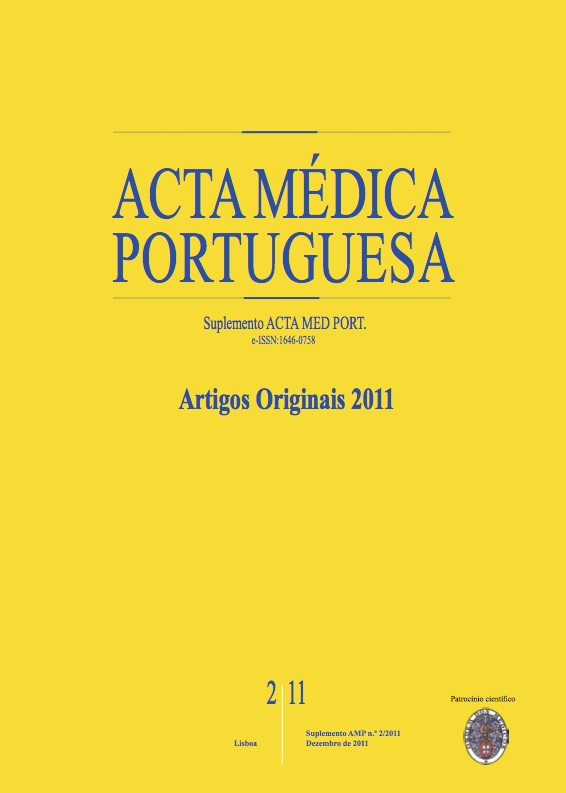Síndrome do Shaken Baby: realidade ou ficção em Portugal?
DOI:
https://doi.org/10.20344/amp.1479Resumo
Shaken Baby Syndrome (SBS) is an unquestionable and current worldwide problem, as it is considered one of the most severe forms of child abuse, with significant morbidity and mortality among children under one year of age. In Portugal the actual incidence of SBS is still unknown and probably undervalued and underdiagnosed, but international literature reports incidences between 14 and 40.5 per 100.000 children a year in several different countries. It is classically considered SBS to consist of shaking a child repeatedly and violently, inducing a cervical whiplash like movement. Due to the child's development stage, this external force of acceleration/deceleration acting on the head and cervical musculature may cause several lesions, specially subdural, subarachnoid and retinal hemorrhage, and sometimes even bone fractures. However, there is no unanimity concerning this trauma mechanism, especially on the requirement of direct trauma to the head leading to intracranial lesions, since a satisfactory biomechanical model to test it is still lacking. Its diagnosis is controversial, difficult and has important legal and family implications, always adding an emotional element to it, susceptible of withholding the necessary objectivity. In order to substantiate a strong suspicion it is thus mandatory to correlate the clinical history, the physical examination and all the diagnostic auxiliary exams. Consequences may range from mild to fatal, encompassing the child's psychological, cognitive, physical and sensory-motor development, on a short or long term basis. Nevertheless, from a global perspective, its prognosis is almost always poor. So, education and prevention assume primary importance in order to reduce incidence, morbidity and mortality of the SBS. Countries like the U.S.A, Scotland, France, Germany, Switzerland, Canada, Estonia and Japan have long been interested in studying this syndrome's trauma mechanism and incidence, as well as in the development of prevention campaigns and other forms of intervention, particularly through education. However, SBS is still greatly undisclosed in Portugal, since there are neither epidemiological studies nor educational campaigns (or other forms of intervention) on this subject. Thus, the aim of this study is to promote reflection and debate on the issue, displaying the relevance of studying it and investing in information and training in Portugal, in order to prevent and properly diagnose such cases in a timely fashion.Downloads
Downloads
Como Citar
Edição
Secção
Licença
Todos os artigos publicados na AMP são de acesso aberto e cumprem os requisitos das agências de financiamento ou instituições académicas. Relativamente à utilização por terceiros a AMP rege-se pelos termos da licença Creative Commons ‘Atribuição – Uso Não-Comercial – (CC-BY-NC)’.
É da responsabilidade do autor obter permissão para reproduzir figuras, tabelas, etc., de outras publicações. Após a aceitação de um artigo, os autores serão convidados a preencher uma “Declaração de Responsabilidade Autoral e Partilha de Direitos de Autor “(http://www.actamedicaportuguesa.com/info/AMP-NormasPublicacao.pdf) e a “Declaração de Potenciais Conflitos de Interesse” (http://www.icmje.org/conflicts-of-interest) do ICMJE. Será enviado um e-mail ao autor correspondente, confirmando a receção do manuscrito.
Após a publicação, os autores ficam autorizados a disponibilizar os seus artigos em repositórios das suas instituições de origem, desde que mencionem sempre onde foram publicados e de acordo com a licença Creative Commons









